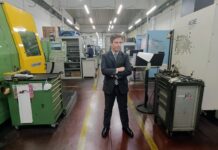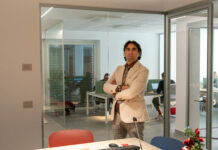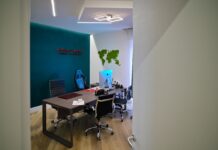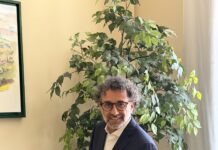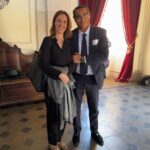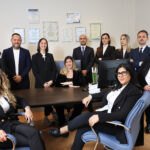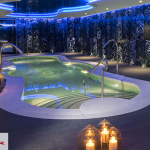Owned by the Pittarello family and with more than 60 years of history, Nesite is the design, production and installation brand of raised floors; an all-Italian excellence, part of the Transpack Group, that has managed to assert its leadership in a competitive market on the strength of a strategic vision and highly specialised skills. Nico Pittarello, CEO Transpack Group, explains the reasons for the success of a company that now aims to make its contribution to a new culture within its sector, based on sustainability.
by Roberta Imbimbo
Dr. Pittarello, how was Nesite born?
Nesite became part of the Transpack Group, specialised in the production of industrial packaging and provision of integrated logistics services since 1974, thanks to a family entrepreneurial vision, determined to invest in strategic activities with a view to business diversification. Thus began the development and valorisation of a product born in our territory (the raised floor is from Veneto), in order to meet the needs of a market increasingly oriented to functionality and sustainability, with innovative and high quality solutions.
Following the acquisition of the Uniflair business unit, sold by Schneider Electric at the beginning of 2022, Nesite has experienced exponential growth both in terms of production capacity and turnover (today it has a turnover of over 24,000,000 euros) and organisational structure (today it has 50 highly qualified employees), becoming in fact an ambitious and innovative reality, able to take care of highly prestigious projects.
What special features distinguish you from your competitors?
In addition to the experience and specialised skills gained over many years of activity, one of our main strengths, which has allowed us to differentiate ourselves from the numerous market players, is represented by the wide range of products we offer, with a high functional and aesthetic value, an innovative spirit, high performance and flexibility, and therefore capable of enhancing architectural projects of absolute value. This is testified by the works realised in the city of Milan (for a total of about 80,000 square metres), including Gioia22, the first nZEB skyscraper in Italy, which rises in the former area of the Inps executive complex. Another important peculiarity, with a high added value and competitive edge, is the ability to provide technical consultancy tailored to the needs of each individual project; a design that pays attention to every detail; industrial production that is strictly Made in Italy and installation with scrupulous craftsmanship. Today Nesite, recognised nationally and internationally (exports currently account for 30% of total turnover), is an excellence with a strong vocation for innovation and sustainability, which has focused its attention on natural, 100% recyclable materials such as cork and resin.

Speaking of sustainability, how important is this issue for you?
For us, sustainability is a virtuous and continuous path, which we address through the use of renewable energy sources, reduction of CO2 emissions, waste recovery, circular economy, and more generally the adoption of a sustainable development model: we have made environmental and corporate social responsibility our main ethical value. Thanks to the choice of harmonising economic growth objectives with green policies – thus combining innovation, productivity, competitiveness and respect for the environment – over the years we have been committed to being a spokesman for best practices throughout the sector. Hence, the decision to obtain important certifications such as ISO 14001, the FSC® of the Forest Stewardship Council®, and the EPD (Environmental Product Declaration), to strengthen our commitment in our sector, for a more sustainable future. Firmly convinced that the production process is inseparable from collective well-being, we have therefore adopted increasingly efficient and automated production models, integrating machines, systems and people. A choice strongly desired to increase brand reputation in a market that is particularly attentive to product quality, respect for the environment and the enhancement of human capital, another aspect that is essential for us. In fact, our sustainability path also concerns the social aspect, i.e. the people who work for us and with us, on whom we are investing heavily in terms of training and welfare policies. To this end, we have just launched Laborability, an internal communication project, a real investment aimed at spreading the company’s identity and ethical values among all employees, to make it clear to everyone where we are going, how we are doing it, and above all why. And always with the aim of creating a culturally innovative work environment, and a regenerative project attentive to the circularity of products, we decided to undertake the delicate path to obtain Cradle to Cradle certification, an important and ambitious recognition for a company with a green heart that every day strives to generate a positive impact on man and the environment.


